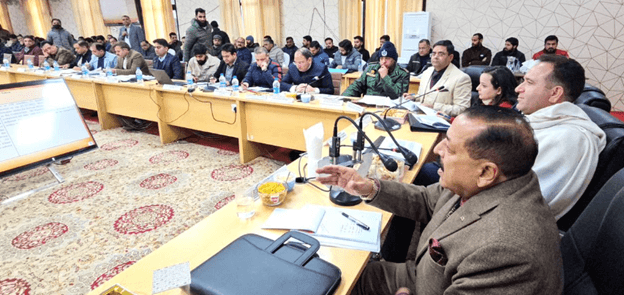S&P affirms ‘BB’ Ratings
Delhi International Airport Ltd’s (DIAL) capital expenditure of Rs.100 billion over three years will put pressure on financials but there may be upside to existing cash flow should control-period 3 tariff be higher than base airport charges or rental income increase with more commercial property development.
Making note of these factors, S&P Global Ratings has affirmed ‘BB’ ratings with stable outlook. It has also affirmed ‘BB’ ratings on DIAL’s proposed US$350 million notes.
DIAL will be able to maintain its financial strength over the next 12-18 months based on airport charges, annual lease rentals, and long-term refundable security deposit from recent commercial property monetization, believes S&P.
DIAL’s large capital expenditure program of over Rs.100 billion will put pressure on financials, but there may be upside to existing cash flow should control-period 3 tariff be higher than base airport charges or rental income increase with more commercial property development, said S&P.
“The stable outlook reflects our view that high visibility on cash flow and a large cash balance would allow DIAL to maintain a ratio of operating cash flow to debt of more than 8% over the next 12-18 months,” said the agency.
“We affirmed the ratings on DIAL because we believe the certainty on base airport charges, increasing non-aero revenue, and a large cash balance will delay a weakening in its leverage due to large expansion in capital expenditure (capex).
“High visibility on existing cash flow and potential upside from a favorable tariff review or an increase in rental income from more commercial property development (CPD) can support financials when they are likely to weaken significantly from the year ending March 2022,” the agency said.
S&P anticipate less regulatory uncertainty and an increase in aero-revenue visibility because of the base airport charges (BAC) that the Airports Economic Regulatory Authority of India implemented in December 2018.
While the company awaits its control-period 3 (CP3) tariff implementation, S&P believe the BAC will buffer against possible future negative regulatory outcomes.
This is because DIAL can rely on the BAC if the tariff reset is severely delayed or if the eventual CP3 tariff is lower than the current BAC, which could happen if there are no positive resolutions to DIAL’s ongoing regulatory disputes.
“Therefore, we believe DIAL is less dependent on a timely CP3 reset due to the BAC and the company’s forthcoming CPD.
“Following the BAC implementation, we expect aero revenue to recover to more than Rs.10.5 billion-Rs.11 billion in fiscal year ending March 2020 onwards, from about Rs.9.8 billion in fiscal 2019.
On March 28, 2019, Bharti Realty signed a 17-year agreement (extendable) to lease 4.9 million square meters of commercial development from DIAL.
Under the terms of the lease agreement, DIAL will benefit from lease payments of about Rs.3.7 billion per year and receive a one-time upfront security deposit payment of approximately Rs.15.3 billion in fiscal 2020.
This monetization will also support cash flow generation and visibility.
“We anticipate these additional CPD payments to bolster DIAL’s cash flow amid both lower aero revenue and uncertainty of its CP3 tariff (April 2019-March 2024).
“We believe DIAL’s operating cash flow (OCF)–which includes interest income–represents the company’s ability to service its debt over the projected period.”
DIAL derives its interest income from long-term refundable security deposits of about 50 years, which is an inherent part of the company’s business model–providing significant capital for airport development and capex.
Due to the company’s large capex program of up to Rs.100 billion over the next three years, S&P expect higher leverage in the absence of any positive tariff adjustments.
“We project DIAL’s OCF-to-debt ratio to be 8%-13.5% over fiscals 2020 and 2021,” the agency said.
However, this ratio will fall sharply to about 5% in fiscal 2022 due to higher interest servicing cost when most of the capex is utilized.
In S&P view, EBITDA will grow to about Rs.9.7 billion in fiscal 2020 from approximately Rs.5.6 billion in fiscal 2019, while adjusted net debt will balloon to Rs.97 billion in fiscal 2022 from Rs.37.5 billion in fiscal 2019.
In addition, downgrade pressure could also arise if ultimate majority shareholder, GMR Infrastructure, has a materially negative influence on DIAL’s strategy or cash flow, according to S&P.
Negative pressure could arise from significantly large dividend payouts or intercompany loans and advances.
“We may raise the ratings on DIAL if we expect the company’s funds from operations (FFO) cash interest coverage to be more than 2x on a consistent basis.
“We believe this would depend on future tariff revisions that are timely and reflect additions to the regulated asset base,” it said. fiinews.com









